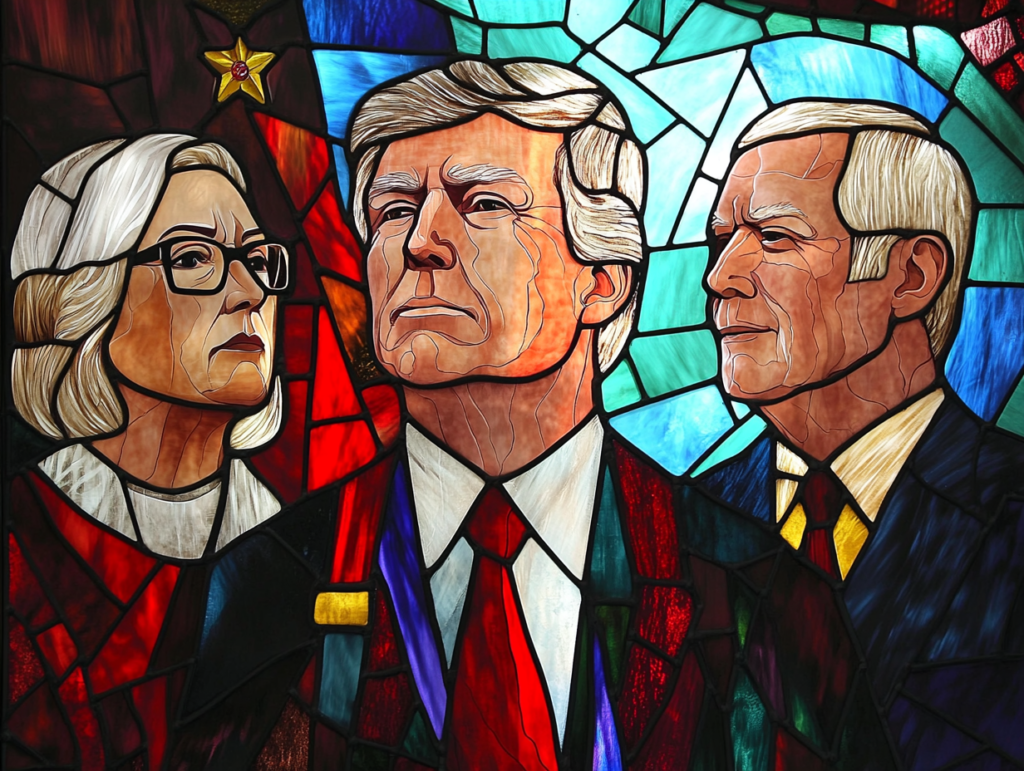“But Micaiah said, ‘As surely as the Lord lives, I can tell him only what the Lord tells me.'” (1 Kings 22:14, NIV).
At the heart of every inauguration lies a curious balancing act: a ritual that seeks to unify the nation while nodding to the higher moral and spiritual ideals that transcend politics. This week’s ceremonies, marking the beginning of President Donald Trump’s second term, were no exception. Prayers from prominent clergy filled the air, offering blessings, invoking unity, and, at times, challenging the very power they were asked to sanctify. But the starkly contrasting tones of these prayers–and the president’s swift rebuke of one critical voice–point to a deeper tension in American public life: the uneasy relationship between religion and politics.
The lineup of prayers at the inauguration ceremony itself was designed to inspire and reassure. Cardinal Timothy Dolan, an esteemed figure in the Catholic Church, invoked the wisdom of Solomon, praying for discernment in leadership. Evangelist Franklin Graham followed with a comforting appeal to trust God in uncertain times, a hallmark of his years-long public support for the president. Pastor Lorenzo Sewell echoed Martin Luther King Jr.’s call to “dream again,” his prayer casting a hopeful vision for the nation’s future. These prayers struck familiar chords, offering comfort and unity, as one might expect from a national ceremony.
But the tone shifted at the National Prayer Service the following day, where Bishop Mariann Budde, Episcopal bishop of Washington, delivered a homily that challenged the administration to lead with mercy and compassion, especially for marginalized groups. Her words were pointed and direct: “In the name of our God, I ask you to have mercy on the people in our country who are scared now.” For some, it was a prophetic call to accountability; for others, it felt like a partisan critique thinly veiled in the language of faith.[perfectpullquote align=”left” bordertop=”false” cite=”” link=”” color=”” class=”” size=””]Budde’s homily was not merely a critique of one administration; it was a test of the nation’s commitment to the free and open expression of religious speech.[/perfectpullquote]
President Trump responded quickly–and predictably–on social media, branding Budde as a “Radical Left hard line Trump hater” and dismissing her words as politically motivated. This moment underscored a familiar dynamic in American politics: the eagerness of leaders to embrace religious voices that affirm their agendas, and their discomfort with those that challenge their authority. In this sense, Budde’s homily was not merely a critique of one administration; it was a test of the nation’s commitment to the free and open expression of religious speech.
When political leaders create an implicit hierarchy of religious voices–elevating those who align with their views and marginalizing those who do not–they risk something greater than a bad headline. They risk turning religion into a tool of political power rather than a source of independent moral authority. This kind of two-tiered system of favored and disfavored religious speech has far-reaching consequences for the integrity of both faith and democracy.
Clergy and other faith leaders must be free to speak openly, whether their words comfort or critique. Without that freedom, the prophetic voice of religion–a voice that has historically called nations to justice, mercy, and humility–becomes muted. Over time, a society that privileges only certain kinds of religious speech undermines the robust marketplace of ideas that is essential to both faith and public life.
The founders of the United States understood this. The separation of church and state was not meant to suppress religion but to preserve its independence and integrity. A government that uses faith to validate its policies or silence dissent risks eroding the prophetic power of religion itself. Faith is at its best when it calls leaders to their highest ideals, not when it is co-opted as a political tool.[perfectpullquote align=”right” bordertop=”false” cite=”” link=”” color=”” class=”” size=””] Faith is at its best when it calls leaders to their highest ideals, not when it is co-opted as a political tool.[/perfectpullquote]
The prayers at this week’s inauguration highlighted this tension. On one hand, they showed the unifying and inspiring potential of religion in public life. On the other, they exposed the vulnerability of faith when it is entangled with politics. For every comforting prayer of unity, there was a reminder of the risk involved in dissent–of what happens when clergy challenge the status quo instead of blessing it.
The story of King Ahab and Micaiah reminds us that leaders often seek affirming voices but are less willing to hear dissenting voic. Budde’s homily was a modern echo of this ancient tension, and the reaction it provoked reveals how fragile the balance between religion and politics remains.
As a nation, we must ensure that all religious voices–whether they praise or challenge, affirm or critique–are free to speak without fear of reprisal or marginalization. For in that freedom lies the strength of our democracy and the true power of faith. If we lose sight of that, we risk losing more than a healthy public discourse; we risk losing the moral compass that faith, at its best, provides.
One of the main factors that determine the effectiveness of any supplement is its ingredients. Mitolyn dietary supplement contains a mix of carefully selected components, including:
Antioxidants: Help combat oxidative stress and support immune function.
Essential Vitamins & Minerals: Aid in various bodily functions and promote overall health.
Botanical Extracts: Natural extracts known to boost energy and mental clarity.
